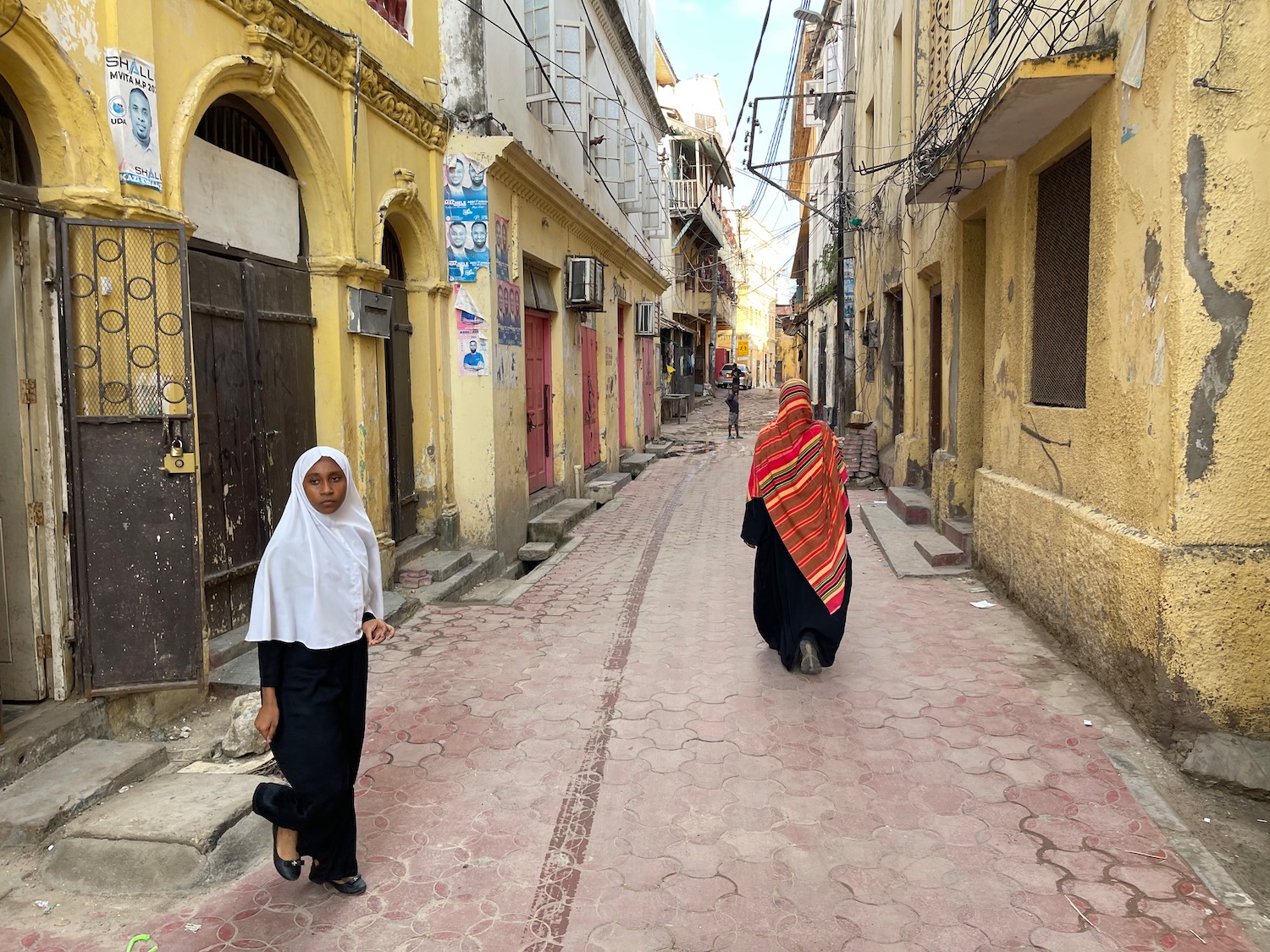
Earlier, I wrote about how to best avoid crowds when visiting Angkor Wat in Cambodia. The millions of visitors who flock to the ancient Khmer capital city are a poignant reminder that a UNESCO World Heritage designation can be both a blessing and a curse.
UNESCO World Heritage Designation: Blessing Or Curse?
I’m sure I am not alone, but if I am in a region or country and wondering how to prioritize my time in terms of touristic activity, I will first check for UNESCO World Heritage sites. These sites were not set up with tourism in mind, but to preserve structure, art, or even ecosystems deemed historically significant and valuable.
The result, however, is crowds…and a lot of them. Sometimes the crowding is so bad and you really have to question whether it is worth the effort (i.e. The Trevi Fountain in Rome…no thank you).
Dig deeper and you also have, in many places like Old Town in Mombassa, Kenya, an unfunded mandate. UNESCO designates sites, but it does not have a body to maintain them or a police force to monitor them. That falls upon governments or charity. And the designation of a UNESCO site may bring with it strict limitations on the development and even maintenance of existing structures:
“We could be as good as Zanzibar, as good as Lamu for tourism,” said Peter Tolle, a local historian who guides tours in French, English and German. “Locals don’t want to talk about being a World Heritage site anymore and they feel shortchanged. Our houses are shabby, we have the money, but we cannot fix them.”
“We are trapped by their rules but there are no funds,” he continued, referring to UNESCO regulations around the changes that can and cannot be made at and near World Heritage sites.
In Egypt, the Pyramids of Giza are falling apart (I guess we all are over time) but people take pieces without consequence or climb up them without regard for their preservation.
Ask UNESCO sites if they’d give it up and I would suspect most say no…it brings in tourism which helps the economy. But it’s not purely a benefit…local economies overrun with tourists do not always result in a better life for locals or even preservation of these historic sites.
I’ll continue to visit UNESCO sites, but I also recognize that visiting a place like Machu Picchu with thousands of others puts the beauty of that site into a different context. With Pandora’s Box opened, however, there is no going back…and like everyone else, I’m not willing to let crowds deter me from visiting. The long-term result will only be more crowding.




Very good article.
The reality is that while Unesco ensures a level of preservation to the actual site the crowds become so out of control that the surrounding areas become devastated from the effects of over tourism. So, sure, the actual spot is fine (if not crowded – which it is) but the town or environment around the designation becomes a disaster. The money did not bring proper development outside the walls. Governments need to better control what kind of development is introduced to the entire region, not just the site. Otherwise a Galle or Ella it will become.
I have my own list of derek sites. They don’t all have Unesco designation. Example, fortress at Halden, Norway and German bunkers on Jersey.
I was in Valletta , Malta yesterday and the whole downtown is a UNESCO World Heritage Site. Crazy scenic place but apparently it has a whole lot of empty buildings because such sites are almost impossible to modernize a building. A mixed blessing for sure.
You overestimate UNESCOs contribution, at least for the examples you gave.
The pyramids don’t need UNESCO to attract crowds, and so do Machu Pichu and Angkor Wat. Revoking status wouldn’t put a dent in crowds.
This has recently been a major debate in Prague, whose entire city center is a UNESCO Heritage Site. As a result, barely anyone actually lives there, because the buildings were largely bought out to monetize the valuable street-level shops and restaurants, but actual living spaces are too much hassle. If you do live there, you’ll have hard time getting approval even for essential things like replacing old windows, or adding wheelchair accessibility.
Curiously, nobody seems to really care about the tacky, bullshit tourist traps and overpriced stores, most of which are an eyesore. For some reason, that’s not a major issue for a UNESCO site.
Right now, the most contentious topic is the railway bridge, which badly needs replacement. Opponents argue that any new one would ruin the UNESCO WH site, even though this one’s only been there since 1905, much shorter than the city itself. And yes, there are now voices who say we’d be better off losing the UNESCO status. It’s not like tourism will disappear, but at least the city wouldn’t be stuck in the past like a tacky theme park.
I don’t think there’s a direct correlation between UNESCO designations and tourism. The Island of Mozambique is a World Heritage site but it seemed like a ghost town when I visited. Puebla and Segovia are another two UNESCO sites that I have visited recently and didn’t seem to be overran by tourists.
Mykonos and Santorini, on the other hand, have no UNESCO designations but are horribly overcrowded, while very few foreign visitors make it to the WH sites on mainland Greece.
UNESCO? How about stupid influencers and social media wannabes? I visited Taormina in Italy 8 years ago. Place was paradise, lots of people but manageable. Prices were manageable. Then the placed was the scene for HBO series White Lotus and suddenly all stupid Instagramers decided to flock to the city. I was just there this summer. an absolute nightmare. You can barely walk on the streets, prices have gone through the roof, restaurants are super crowded and all you see are flock sod tourists following a guide with a flag on a pole. They offer the “White Lotus” tour that people pay to visit the places sown on the show. I went to a local pastry shop and bought a bunch of stuff and talked to the owner. She was surprised I really appreciated her place as she told me that most people just go in, take a selfie and leave without buying anything.
That’s more like it- also see the hordes of Americans descending on Dubrovnik because the Lord of the Potter Wars or whatever was filmed there. I bet that not even 10% of them bother to visit Zagreb or have even heard of nearby Ljubljana, one of the prettiest European capitals.
Game of Thrones. But Dubrovnik was packed like crazy in the summers even a decade before Game of Thrones came out. And those crowds can’t be blamed on the books on which GOT was based.
Shhhh….ranting people on the internet gotta rant about something.
I know DBV has always been popular – I remember my Polish friend who used to spend her summers during university taking coachloads of tourists all the way from Warsaw. I specifically mentioned Americans, not because I have anything against that particular nationality, but because they are mostly/only visiting because of the thing that got filmed there. It also doesn’t help that they’re used to paying daft prices and tipping absolutely everywhere.